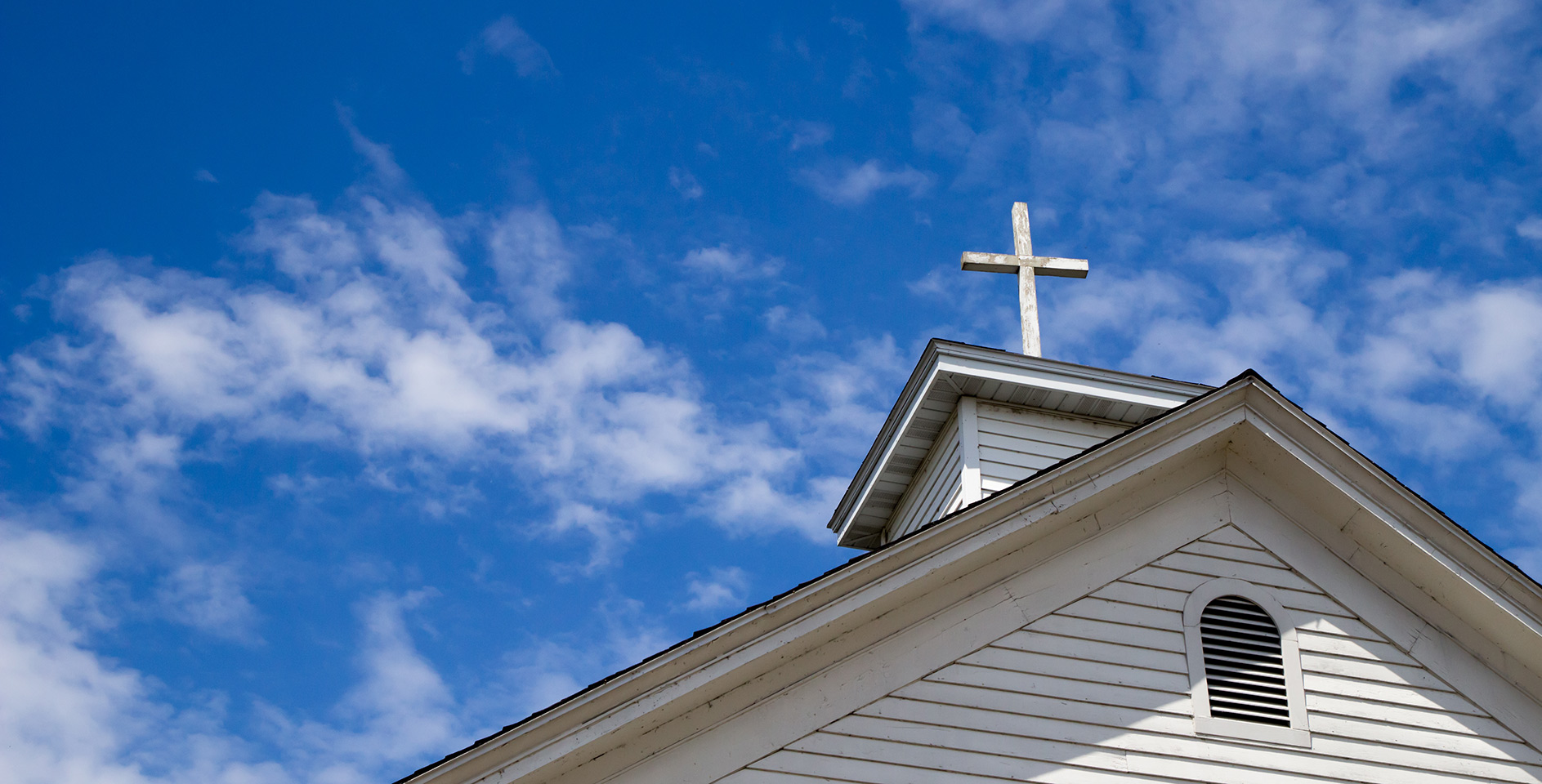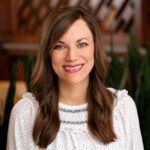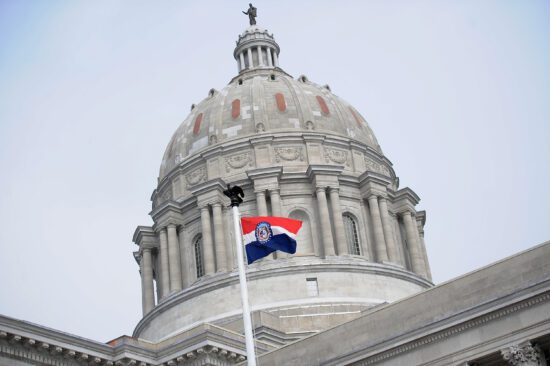Rolland Slade, the senior pastor of Meridian Baptist Church in El Cajon, California, was elected as the first black chair of the Southern Baptist Convention’s executive committee in June. And he and his church are excellent examples of what it looks like to be a witness for Christ in their community. During the pandemic, they have modeled respectful civic engagement and continued creative ministry. Below, Slade answers a few questions about how his church worked with city leaders to serve their community in a remarkable way.
You and your church came up with a wonderful way to care for the community? How did you develop this idea?
We have been hosting a fellowship meal for years on Wednesday evenings as part of our ministry midweek programming. A few years back, the mayor of El Cajon, Mark Lewis (the current mayor is Bill Wells, who is a friend), challenged us to make it more inclusive. So we opened it up to the general community. Previously, it was more of a dinner for members of the church and their families or friends. When we opened it up to the community, we discovered that a good number of the people who were living in homelessness began coming to eat. Several of our members intentionally built relationships with them and learned their stories. From that, we began to hear about people who were falling on hard times and needed shelter.
I also have been serving on the Regional Task Force on the Homeless in San Diego for a number of years. While on the board of directors, I heard and read about tiny homes and villages of homes being set up in other communities around the country. Then I saw an article in our local newspaper about Amikas and their Emergency Sleeping Cabins. They had built a number of them in another community, but they were for display only. We had some land at the church, and I contacted Amikas to discuss building a “display” cabin on our church property.
As I said in the Baptist Press article last year, “we were using the property to grow tumble weeds.” Building the display cabin would give cities in the east region of San Diego County an opportunity to come by and see what they looked like. Now almost a year later, we are working with the city of El Cajon to build a small village of six cabins.
How will it serve the members of your community?
For the village, we have adopted Amikas’ vision of “San Diego County as a place where every woman and child has a safe place to live.” Amikas’ mission is to prevent women and children, especially veteran women, from being homeless.
What pushback did you encounter, and how did you handle it?
There was initial pushback. People have seen through the media how some of the encampments in Portland, Seattle, and Oakland have been disastrous. Initially, people thought that what we were proposing to build would be a “come one, come all” type of village. We have taken the time to talk with people and let them know that we are working at developing this project for a specific group of people, for a specific period of time. The goal is to do this right, to cross every “t” and dot every “i.” We want the project to be successful, but we also want it to honor who we serve, God.
Can you tell us about your conversations with your local leaders?
Local leaders pushed back as well. So, I took the time to call them. I have been serving at Meridian for 16 years. During that time, I have built relationships with the city leaders. They know me as a leader, as a pastor, and importantly, as a friend. We have had conversations through the years. I have been there with them in good times and in times of crisis, so we know each other. I reached out to them via cell phone, not calling their offices and leaving a message. They have my cell numbers, and I have theirs. We don’t abuse the privilege of having each other’s personal numbers.
So, I called them and asked them what their concerns were. They shared their concerns, and I listened. When they finished, I reminded them that they knew who I was and what Meridian has done in the community. The congregation was established in 1957, so we are not “newbies” coming into the community. We have an established history of service and care for the community. I explained that we have a genuine problem with people living in homelessness in the city. Of course they knew that, yet I reminded them that not everyone was on the streets because of drugs, alcohol, or addiction. Some were there because of a crisis in their life or a circumstance that spun out of control. I shared that we wanted to help and that this project was going to be a “Starfish” type project. We may not be able to save everyone, but it will make a difference in the lives of those we are able to help.
I firmly believe that God places us in a community not just to cultivate people in the pews or seats of the worship center, but to be “salt and light” in that community.
Additionally, if we can help six, eight, or 10 people, and another church can help another six, eight, or 10, and another, etc., then we could easily eliminate people living in homelessness in the city. And wouldn’t that be fabulous! They also were of the mindset that we were creating a “come one, come all” type project. Again, I reminded them that we wanted to do this right. We are in this for the long haul of providing a piece of the solution to homelessness.
How would you coach ministry leaders and pastors to talk to their local leaders?
Talk to their local leaders before a crisis. Be there before something happens, and establish a relationship. Recognize them as leaders, and ask them how can you help? Ask how you can pray for them? Ask where they need volunteers? Then follow up with them. Pastors know how lonely leadership can be, so do elected officials. Reach out to them; meet with them just for coffee and have a conversation. Get to know them and love on them as leaders.
How have you been encouraged by your partnership with the local government?
I have been encouraged by our partnership with local government through watching God’s hand on their lives. I have seen people whom I met when they were just beginning their careers rise up to be the people in charge. For example, it’s like the police lieutenant or captain you first meet, get to know, pray for and with, and then watch get promoted to police chief. Or, it’s like the elementary school principal who’s school your congregation blessed one Christmas rising up to become superintendent. I firmly believe that God places us in a community not just to cultivate people in the pews or seats of the worship center, but to be “salt and light” in that community. I have seen the investment of time in people’s lives (discipleship) come back to bless the congregation.
And why is this important for the church’s witness to a watching world?
This is so important to the watching world because people today—skeptical, self-centered, and hurting—want to know what is in it for you. By blessing the community, specifically its leadership, we are demonstrating the love of God that is so desperately needed right now. It is not about the church being the real deal; people want to know that God is real. We have the opportunity every day to show the world that we are God’s.
How are you counseling other pastors in your area who are frustrated with the COVID-19 regulations?
I am counseling them to not be frustrated by the regulations and to listen, gather information, and make the decisions that are in the best interest of the people God has given them charge over. I’m reminding them that they are under-shepherds, placed by God to care for his people. What they can do is step into their roles with the understanding of what a shepherd has to do to take care of the sheep.
And how have you been helped by SBC organizations as you think through these issues?
The SBC has helped me to understand my role and how to navigate through systems that typically are ministry or clergy friendly. The ERLC, in particular, has been helpful in keeping us informed of issues that relate to our biblical worldview and has assisted us in better understanding the legislative process. That has been specifically helpful in comprehending the local process (city council review, planning commission, city administrative staff, public hearings and approval timeline).
For more with Rolland Slade, listen to this Capitol Conversations podcast.










